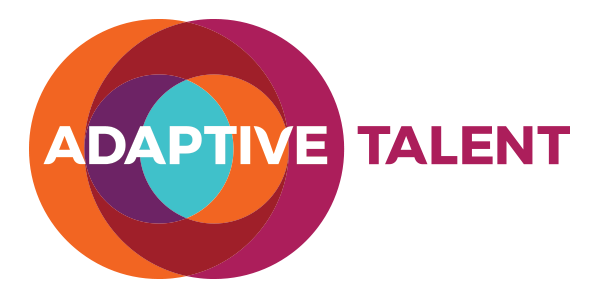Jazz writer Nat Hentoff once quoted civil rights activist and first Afro-American president of the American Psychological Association Kenneth B. Clark as saying, “People who effectively lead organizations through change display three qualities – analytical skills, disciplined sustained energy, and hope – that enable them to engage in the long complex battles necessary to overcome resistance and sabotage.”
In most organizations, those “long, complex battles” take the form of conversations – some in meetings, many in corridors and coffee shops, and a few behind the backs of the people championing the change.
So, how can we manage the sound created by our voices to ensure that the conversations we either initiate or engage in contributing in the most positive way possible to beneficial change? That’s the question I will explore in this issue.
First, let’s admit that change is the new normal. I still encounter people and organizations who are waiting for things to get back to normal, meaning the way they used to be and the way with which they are most comfortable. Our energy is best spent preparing for the future rather than trying to re-create the past. The best attitude to bring to that preparation is one of valuing the best of the past and discovering with others how to achieve the mission even better in the future. This focus might even spark some generative conversations that produce a better mission. Change, then, is seen as an opportunity to improve, to create more benefit for others, to achieve more satisfaction for your own soul.
Second, the analytical skills best suited to using change creatively involve focusing on what’s going well and what you are doing best. It’s easy to get stuck in analyzing problems. They seem the most pressing issues and solving them produces an immediate satisfaction. But if problems draw you attention, they will also draw your energy. You will get stuck in the mindset that created the problem. No alternative way of seeing things will emerge, no matter how hard you try. If, however, your analytical skills are focused on what’s possible and what you can best do to achieve your positive goals, then you will move forward rather than get stuck in the past. It’s a subtle but significant choice of where you focus your attention and energy. Focusing on positive possibilities generates far more wins than staying stuck in puzzling problems.
Third, discipline will sustain your energy if you keep it focused on choosing and implementing the best possibilities for achieving audacious aspirations. It is not simply people who inspire other people. Leaders cannot sustain inspiring energy simply on the strength of their personality. They must be pointing to a larger vision for the greater good and creating the conditions for achieving it. They must be creating community benefit in some significant way. We get and stay inspired by a shared vision of contributing to a better world. If our managers and leaders create and hold the space for us to know better, decide better, and act better, as Henry Mintzberg urges them to do, then we will follow and support willingly. Our communal energy will flow in clear channels of accomplishment through which we co-create a better future.
Fourth, and finally, hope holds this complex dynamic together. The jazz musicians I have come to know well could not perform as well as they do without that resilient sense of hope for something new and better in every performance. They come to the opportunity prepared by years of intentional and focused practice in how to best contribute their talent through their instrument. But this opportunity is new. They have never been here or done this before. New possibilities beckon. New hope blossoms. New music will be created every time they play.
The same is true for every conversation you come to. New possibilities beckon. New hope blossoms. New results will be achieved every time you talk. The positive focus of your analysis, the disciplined energy of your conversation, and the hopeful mindset of your intention all blend to achieve successful and beneficial change. Showing up consistently and persistently in this way is the only power that can overcome resistance and sabotage. And it really does work. Just try it.
A Better Approach to Change
The most commonly used approach to change in organizations over the past two decades has flowed like this. A small group of visionaries has decided where the organization should and must go. They draft a strategic plan to take it there and present it with an intense tone of urgency. They use the latest methods of persuasive communication to convince others they are right. They create performance plans to ensure that people comply with their vision. And finally, they agonize over why this whole (probably expensive) process has not worked the way they expected. (Studies suggest that 75% of change strategies fail to be realized on time, on budget, or at all.)
In a recent interview on CBC radio, Ian Anderson, President of Kinder Morgan Canada, called this the “DADs” approach – Decide, Advocate, and Defend. He thinks this kind of paternalism is counterproductive in today’s business environment.
My alternative suggestion is the “PALs” approach, based on Participation, Appreciation, and Learning. This kind of collaboration involves convening compelling conversations that enable all involved to co-create a better future. It attracts attention, generates interest, inspires conviction, and ignites action. Change becomes a project of the whole community, not just a few experts who claim to have the right answers. The wisdom of the whole is brought together in the service of a better future for everyone.
The best exploration of this kind of change process that I’ve discovered so far is found in Richard H. Axelrod’s Terms of Engagement (2000). This approach to change is built around four core principles: 1) widen the circle of involvement; 2) connect people to each other and ideas; 3) create communities for action; and 4) practice democratic principles.
—
Adaptive Talent is a talent consultancy designed to help organizations achieve amazing results and ongoing adaptability. Founded in 2008 and based in Vancouver, Canada we offer retained search, assessments, total rewards consulting, training, leadership coaching and development programs, and culture & organizational development consulting.

